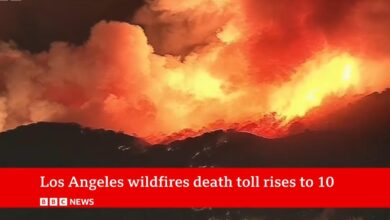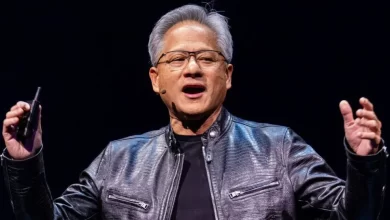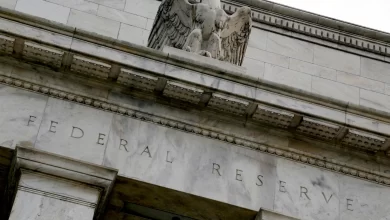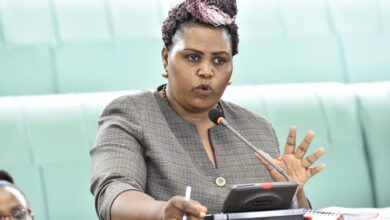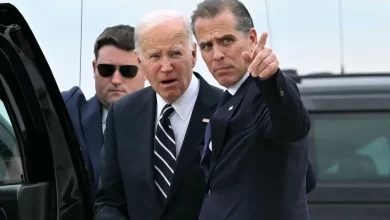BusinessInternational News
India’s Modi arrives in Ukraine for talks with Zelensky weeks after Putin meeting
India’s Modi arrives in Ukraine for talks with Zelensky weeks after Putin meeting
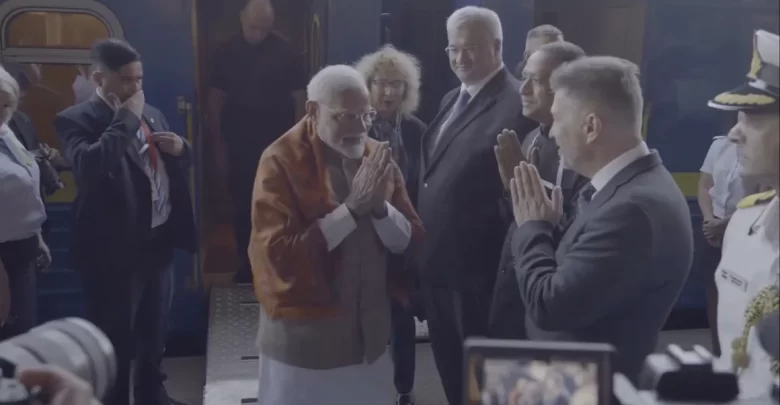
Indian Prime Minister Narendra Modi arrived in Kyiv on Friday for talks with Ukrainian President Volodymyr Zelensky that will be keenly watched in Russia as its assault on its neighbor grinds on.
Modi’s visit, the first by an Indian leader since Ukrainian independence, comes just weeks after he traveled to Moscow in a symbolic first overseas trip of his new term as leader, where he held talks with President Vladimir Putin that were criticized by Kyiv.
New Delhi has repeatedly called for a ceasefire and peace in Ukraine but has refrained from condemning Russia’s invasion as it seeks to maintain relations with Moscow – a major supplier of its arms and a longstanding partner it sees as key to balancing its strained relationship with China.
India has also acted as an economic lifeline for Russia, ramping up purchases of its crude oil after countries around the world slapped sanctions on Moscow, isolating it economically.
India overtook China as the world’s biggest importer of Russian oil last month, according to Reuters, citing data from trade and industry sources.
The Indian leader’s arrival in Kyiv — a day ahead of Ukraine’s independence day — follows his two-day trip to Poland, where he elevated India’s ties with the NATO member. Referencing conflicts in Ukraine and the Middle East during a press conference in Warsaw, Modi reiterated India’s stance that “no problem can be solved on the battlefield.”
“We support dialogue and diplomacy for the early restoration of peace and stability. For this, India, along with its friendly countries, is ready to provide all possible support,” Modi said Thursday alongside Polish counterpart Donald Tusk.
Tusk praised Modi’s “intention to help end the war in Ukraine in a quick, peaceful and fair manner.”
Modi’s visit to Ukraine also comes at a key inflection point in the two-and-a-half-year war, as Ukrainian forces earlier this month launched an unprecedented offensive into Russian territory that Moscow is scrambling to counter.
Zelensky and Kyiv officials are urgently working to expand global backing for their peace formula, which is predicated on the withdrawal of Russian troops from their land. The upcoming US presidential election has raised concerns that crucial American backing could be cut if Republican candidate Donald Trump, who has been critical of NATO and US support for Kyiv, is elected.
Ukraine, throughout the war, has sought to convince countries that maintain close relationships with Russia — such as India and China — to push Putin toward Kyiv’s terms for peace.
But while India attended a Kyiv-backed international peace summit in Switzerland in June, it stopped short of endorsing the gathering’s communique, saying that resolution requires a “sincere and practical engagement between the two parties to the conflict.”
During his visit to Ukraine, Modi is expected to discuss with Zelensky what India’s Foreign Ministry described as “the entire gamut of bilateral relations,” including trade, infrastructure and defense.
“This landmark visit, of course, takes place against the backdrop of the ongoing conflict in Ukraine, which will also form part of discussions,” the ministry’s secretary for the West, Tanmaya Lal, said Monday.
The Ukrainian presidential office said Modi and Zelensky would “discuss issues of bilateral and multilateral cooperation” and that documents would be signed.
Officials from both countries have in recent months expressed interest in restoring trade, which has dropped during the war, according to annual data from Ukraine.
Modi and Zelensky have met twice on the sidelines of G7 summits since the start of the war, including in June in Italy.
Zelensky last month condemned Modi’s meeting with Putin, which coincided with a Russian assault on several Ukrainian cities and a deadly strike on a children’s hospital.
Then, the Ukrainian leader described Modi’s rapport with Putin as a “huge disappointment and a devastating blow to peace efforts to see the leader of the world’s largest democracy hug the world’s most bloody criminal in Moscow on such a day.”
Modi did not directly address the strikes at the time, but he made what appeared to be some of his most critical comments to date on the war, saying “any person who believes in humanity is troubled when there are deaths, especially when innocent children die.”
He also called for a “path to peace through dialogue.”
